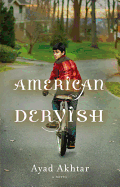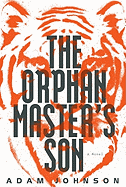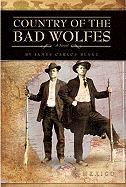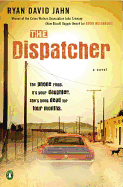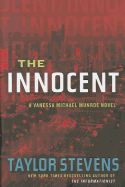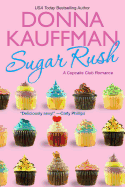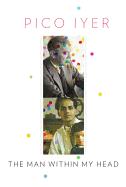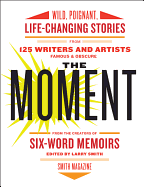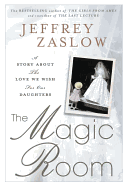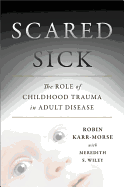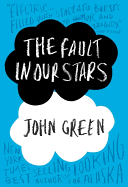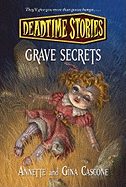 Pity the poor writer of science fiction. The pace at which fact is now duplicating fiction is getting so rapid that the writer barely has the chance to type "The End" before his oh-so-fantastic ideas are being sold on Amazon.
Pity the poor writer of science fiction. The pace at which fact is now duplicating fiction is getting so rapid that the writer barely has the chance to type "The End" before his oh-so-fantastic ideas are being sold on Amazon.
H.G. Wells was given 70 years' grace before his "capsule to the moon" idea became reality. Kirk had to wait 30 years before his tricorder was available in the shops. But I got a fiction-to-fact breathing space of only two years.
My book The Demi-Monde: Winter describes how the U.S. army develops a MMOG (a massively multiplayer online game) to provide training for its grunts in Asymmetric Warfare Environments. This virtual world--the eponymous Demi-Monde--is populated by 30 million digital duplicates, and considering the amount of processing power such a world would need, I proposed that this 30-mile-wide simulation would need to be platformed on a quantum computer by the name of ABBA. I set the story in 2018, so I felt pretty confident that fact wouldn't be catching up with fiction until the four-book series was on the shelves.
Big mistake. I was asked the question: "Is it plausible that any government is working on a Demi-Monde of its own at this very moment?" My initial reaction was "Don't be silly," but I Googled "Virtual Worlds + US military" and alighted on the Nextgov site, which reported that "the Army wants to develop a massive virtual world populated by 10,000 avatars that are managed by artificial intelligence and operate over a 32-mile-square simulated landscape." Fact had caught up with fiction!
All I would say is that the U.S. military should wait until all four books are out before going much further, and if they've got ParaDigm CyberResearch as a contractor, they're in big trouble. --Rod Rees, author of The Demi-Monde: Winter (Morrow, December 27, 2011)
The Orphan Master's Son
by Adam Johnson
Jun Do, the eponymous orphan master's son of Adam Johnson's second novel (after 2004's Parasites Like Us), picks out the names for the orphanage's wards from a list of North Korean revolutionary martyrs, which is also how he got his own name. "The revolutionaries in Pak Jun Do's unit didn't trust him because he was descended from an impure blood line," he explains to his partner in a commando squad that kidnaps Japanese citizens at the whim of Kim Jong Il and other high-ranking officials. "To prove his loyalty, he hung himself."
Such morbid fatalism pervades every scene in The Orphan Master's Son. Even at its funniest--and there's a lot of humor here--there's an underlying realization that one false move can send a character to the prison camps; when things go wrong, characters scramble to come up with plausible stories that will excuse the failure without incurring the wrath of the "Dear Leader."
As Jun Do's surreal odyssey builds up to a brazen impersonation of legendary Commander Ga, Johnson increasingly turns to new voices, including a series of over-the-top government propaganda bulletins--"Citizens, gather 'round your loudspeakers!"--that distort the story in Kim Jong-il's favor. Yes, the Dear Leader is a character in the second half of the book; he obviously knows that Jun Do isn't Commander Ga, but it amuses him to accept the deception, which means all of Pyongyang must play along--including Ga's wife, Sun Moon, the greatest actress in North Korea.
Though the split time structure of the novel's back half means readers can be pretty sure ahead of time what will happen, Johnson guarantees that they'll want to see just how it happens. --Ron Hogan
Discover: The death of Kim Jong-Il gives this novel an obvious timeliness, but Johnson's account of life under a totalitarian regime has the power to outlive historical circumstance.
American Dervish
by Ayad Akhtar
In the prologue of this moving, insightful story about religion and family, immigration and assimilation, narrator Hayat Shah recalls a watershed moment: at a college basketball game, he and two friends order two bratwurst and a beef dog from a vendor. When they get three brats, Hayat decides he has no reason not to eat one. And after, he feels transformed.
The evening after the game, Hayat's mother calls to tell him that Mina had died--his mother's best friend and the person who'd had the greatest influence on his life. He is deeply grieved, and feels a haunting guilt as well. How that bratwurst sums up Hayat's journey from his Pakistani, nominally-Muslim home in a Milwaukee suburb; the sifting through life lessons to find what really matters; what he learns about true faith as opposed to formulaic faith; and what he learns about hate and sacrifice--all are limned beautifully and powerfully by Ayad Akhtar as he tells Hayat's, and Mina's, story.
Akhtar's explorations into the tension between the universal truths of a religion and literal readings of its documents play out effectively in his debut novel. A master of scene and dialogue, and evocative prose, he's created a compelling and visceral story. When Mina teaches Hayat to listen to the still small voice within that can be heard only by finding the silence at the end of a breath, Hayat tries, and discovers what will continue to inspire him to find the still, small voice hidden between and beneath each breath, and, with it, wisdom and insight. --Marilyn Dahl, reviews editor, Shelf Awareness
Read more about American Dervish in our Maximum Shelf.
Discover: A beautifully written debut novel that explores immigration and assimilation, faith and belief.
Country of the Bad Wolfes
by James Carlos Blake
Chock full of real criminals, rough justice, and ribald romance from New England to Mexico, James Carlos Blake's Country of the Bad Wolfes has all the titillation of a telenovela and then some. Blake tracks the adventures of the Wolfe family--whose lives are based in part on those of his own ancestors--over three generations, beginning with twin brothers Samuel Thomas and John Roger. They differ deeply beneath the skin, but they share an unbreakable sense of fraternity and the secret knowledge of a pirate father’s fate. Both are destined for the tumultuous world of war-torn Mexico but will travel vastly different paths to get there.
Spanning from the Mexican-American War to the Revolution of 1910, Country of the Bad Wolfes covers a lot history in relatively few pages, peopled by a complex web of family members--so many it's hard to keep track--and, with few exceptions, they never last long enough for the reader to develop any attachment. The Wolfe kin drop like flies, if not by bloodshed, then by disease, or in childbirth. The survivors lead lives imbued with the magical realism of García Márquez and meet deaths marked by the frontier brutality of Cormac McCarthy. With generous dollops of good old-fashioned melodrama and juicy tidbits of Mexican political history, Blake's story will entertain fans of historical and adventure novels alike. --Tom Lavoie, former publisher
Discover: In a family of renegades, the ties that bind often end with the noose.
Mystery & Thriller
The Dispatcher
by Ryan David Jahn
Ian Hunt, police dispatcher in Bulls Mouth, Tex., is hard at work on a solitaire game when the 911 call comes in. Expecting the usual small-town emergency call, he discovers his daughter on the other end--the daughter who was kidnapped seven years ago, the daughter he'd buried in a symbolic ceremony only four months earlier. She has managed to elude her captors, but before Ian can get help to her, the kidnapper grabs her again and is back on the run. Now the depths of Ian's love for his child are put to the test: How far is he willing to go to save her?
Ryan David Jahn (Good Neighbors) expertly weaves the story of a battle between two men who both believe they are fighting to protect their families. Their actions mirror one other, and each judges the other for those actions. When man pushes aside the laws of society for what he deems justifiable cause, the result is physical, mental and emotional carnage.
Jahn's quiet intensity lulls the reader into the sleepy atmosphere, heightening the explosive action when it comes. In the meantime, Jahn builds empathy for his characters through flashback scenes, helping the reader find justification in lawlessness. The Dispatcher is a tale that challenges readers' perceptions of right and wrong, good and bad. The grime of this small town dirties everyone's hat, until it's virtually impossible to tell who's wearing the white ones. --Jen Forbus of Jen's Book Thoughts
Discover: One man's crusade to save his daughter at the expense of another man's mission to protect his wife.
The Innocent
by Taylor Stevens
In this sequel to The Informationist, Vanessa Michael Munroe is back. Taylor Stevens's heroine has been compared to Jack Reacher, Jason Bourne and Lisbeth Sanders, and evokes each--but also possesses certain qualities all her own.
The traumatized Munroe, facing her horrific past every time she tries to sleep, vacillates between insomnia and drug-induced oblivion. Her private battles are interrupted, though, when her old friend Logan shows up begging for her help. Eight years ago, when she was five, Hannah was kidnapped by members of a religious cult called The Chosen. As a former member, Logan know first-hand how desperate her situation must be--and though his gruesome childhood is not quite like Munroe's, he has an understanding of her damaged soul. Now, eight years after her capture, Logan finally knows Hannah's location, and he needs the help of Munroe to free her. But to get Hannah out of The Chosen, Munroe will have to go in.
The Innocent is tight and fast-paced, an adrenaline rush of a novel with vibrant settings ranging from Morocco to Buenos Aires and characters who jump off the page. The descriptions of The Chosen's abuses of its own members are heartwrenching; Stevens's own experience in such a world makes this semiautobiographical novel's emotional impact even stronger. But the story's greatest strength may be Munroe herself: gender-bending, starkly violent, as lethal with her bare hands as she is with a knife, she steals the reader's heart, tortured psyche and all. --Julia Jenkins, librarian and blogger at pages of julia
Discover: A whirlwind thriller about a seriously a**-kicking female renegade battle against a hair-raising cult.
Romance
Sugar Rush: A Cupcake Club Romance
by Donna Kauffman
Baking always made sense for Leilani "Lani" Trusdale. "Flour, butter, and sugar were as integral a part of her as breathing," as Donna Kauffman describes the heroine of Sugar Rush, the first installment in her Cupcake Club series of romance novels. But when Lani walks away from her demanding job as an upscale New York City pastry chef to launch a cupcake shop in Sugarberry, a remote Georgia island where her widowed father now resides, her dreams of settling in to quiet baker's bliss are suddenly upended. Lani's former boss and unrequited love, Baxter Dunne (aka "Chef Hot Cakes") follows her to the island, hoping to woo his protégé under the pretext of filming a segment of his top-rated TV cooking show in Lani's new cupcakery.
Kauffman writes crisp, emotionally charged dialogue as Lani, liberated from Baxter's high-profile shadow and at the helm her own pastry kitchen, learns to stand up to her former boss. Will Baxter come to respect Lani's career move? Will Lani's pride allow her to succumb to Baxter's quest to make amends and win her affections? Adding to the tension of the couples' love-hate attraction, Lani's chef friends have their own opinions about what's best for her; throw in the whispers and meddling of Sugarberry gossips who fawn over the rock-star TV chef, with his delightful British accent, and folks in the tiny coastal town begin to indulge in more than just gourmet cupcakes. Sugar Rush is a sweet, delicious romance fortified with mouth-watering cupcake recipes. --Kathleen Gerard, blogger at Reading Between the Lines
Discover: A sweet, delicious romance about a small town pastry chef wooed by her high-profile ex-boss.
Biography & Memoir
The Man Within My Head
by Pico Iyer
Having traveled with Iyer so enjoyably to Cuba, Kyoto, Kathmandu, Ethiopia, Brittany, Iran and Bighorn, Wyo., it is now the reader's pleasure to go on a journey with him to another territory: his obsession with the work of the late Graham Greene and what it means to be an outsider.
"Hauntedness" is a recurring theme in the book. Iyer writes: "Yet if I were really to want to learn about hauntedness--those people who seem so to shadow our footsteps that we can never be sure if they have slipped into our lives or we have just stepped into their imaginations."
Both Greene and Iyer are citizens of the world, but that doesn't mean that they are at home wherever they roam. Quite the contrary: having one foot in each world--at home and abroad--can be disorienting at the very least, even when one travels by choice.
"Slipping in and out of identities would be what kept Greene alive, officially and otherwise, all his life," Iyer explains. He was a shape-shifter, bipolar and bifurcated about God, relationships and his father. Iyer, in examining Greene's relationship with his father, comes to a new, unexpected understanding of his own father.
Iyer loves Greene, the man and his work, and his deep understanding and appreciation of him make both men and both writers seem to inhabit one another, weaving stories in and out of their experiences. --Valerie Ryan, Cannon Beach Book Company, Oregon
Discover: Pico Iyer's latest journey, his obsession with Graham Greene.
The Moment
by Larry Smith, editor
The editors at Smith magazine know: sometimes a good story needs only six words. But when editor Larry Smith toured to promote the wildly popular Six-Word Memoirs series, he heard dozens of raw, powerful, funny, heartbreaking, life-changing stories--most of them longer than six words. This volume collects 125 of those tales--some a scant few paragraphs, others stretching to two or three pages--of key moments, both dramatic and ordinary, that changed their writers' lives.
From accepting a job as Hunter S. Thompson's assistant to becoming a single dad, from cancer diagnoses to first kisses, these moments stand as markers of significant change and often of hope. A handful of famous names--Dave Eggers, Elizabeth Gilbert, Melissa Etheridge, Judy Collins--appear alongside dozens of obscure writers, bravely telling their stories in voices bold, distinctive and often quirky. Half a dozen stories appear in illustration or comic-strip form; others began as assignments in high-school writing classes. The most powerful ones neither moralize nor varnish the truth; they simply point to lives split in two by moments ranging from spectacular to devastating to quietly powerful. A few six-word memoirs--and a scattering of longer "moments"--appear at the end of several stories.
The true value of this collection lies in its range of experiences, from riding the rails hobo-style to surviving car crashes to getting that phone call from Oprah. Readers will be moved to consider their own life-changing moments, perhaps even to share them. --Katie Noah Gibson, blogger at Cakes, Tea and Dreams
Discover: A collection of essays about life-changing moments--sharp, funny, poignant and thought-provoking.
Social Science
The Magic Room
by Jeffrey Zaslow
What symbolizes a woman's hopes and dreams more than her wedding dress--and who better to tell tales from the heartland's center of bridal finery than Jeffrey Zaslow? Seeking a format to express his love for his own three young adult daughters, Zaslow (The Girls from Ames) took his wife's advice: recalling her dad's extra efforts to deliver her wedding dress, she suggested Zaslow look to this defining moment in a woman's life as his focus. Fortuitously, he discovered Becker's Bridal just north of his Detroit home--the go-to wedding dress boutique for brides throughout the upper Midwest.
With his keen eye for human interest stories and his sensitivity (an advice columnist for 14 years, Zaslow was the original replacement for Ann Landers, and now writes a Wall Street Journal column on life transitions), Zaslow profiles many of the women who have come, shopped and eventually posed in their dream dresses in the "Magic Room," with its mirrored walls and soft lighting. He interviews brides whose mothers shopped there and follows young women whose paths to the altar are sometimes bumpy; along the way, he recounts the 76-year history of the Becker family business, which has survived regional economic downturns, family challenges and changes in wedding traditions.
The Magic Room symbolizes dreams come true, and reflects Zaslow's affection and optimism for family love and commitment. --Cheryl Krocker McKeon, bookseller
Discover: A magical shop in a small Michigan town where brides shop for their dream dresses.
Psychology & Self-Help
Scared Sick: The Role of Childhood Trauma in Adult Disease
by Robin Karr-Morse with Meredith S. Wiley
Since 1990, an uptick in diagnoses of post-traumatic stress disorder (PTSD) for children has created, family therapist Robin Karr-Morse argues, a ripple effect of repercussions as those individuals mature into adulthood. Scared Sick makes an erudite, well-considered case that the quickening pace of change in modern culture, with a rapid recurrence of new threats and fears, has overtaxed our innate "flight or fight" response--simply put, humans haven't evolved as quickly as their dangers, leading to a cascade of health problems that start in early childhood.
Karr-Morse has the science to back up her claim; some of the presentation is technical ("early fears trigger disease by dysregulating the HPA axis," runs one such section, "activating the vagus nerve, and catalyzing epigentic mechanisms that facilitate the expression of genetic disease"), but other sections are more straightforward in their tone. Scared Sick looks at research from across multiple scientific disciplines to make a convincing case for the particular harms unrecognized or untreated trauma can create in human development, using notable cultural figures, such as "Unabomber" Theodore Kaczynski, as examples. Karr-Morse also devotes chapters to prevention and treatment options for parents and medical providers, solidifying the book's status as a must-read for pediatricians and mental-health counselors working with children and families. --Matthew Tiffany, counselor, writer for Condalmo
Discover: A cogent examination of the changing role of childhood trauma on lifelong health.
Children's & Young Adult
The Fault in Our Stars
by John Green
John Green (Paper Towns) has a gift for creating memorable heroes with intelligence and humor. In his latest novel, he imagines a trio of friends who connect through a support group of kids in various stages of suffering or recovering from cancer. This accomplished novel explores life and death, love and loss, and the fullness of experience when one knows it is finite.
Sixteen-year-old Hazel Grace Lancaster, who narrates, was originally diagnosed with thyroid cancer, but now has "mets" in her lungs. Pressured by her parents to attend this support group, she finds its one redeeming quality to be Isaac, who has already lost one eye to cancer, and a recurrence has placed his second eye "in mortal peril." One day, a "hot guy" named Augusts Waters comes to the group at Isaac's request. He is in remission after a bout with osteosarcoma that cost him a leg.
The novel overflows with wonderfully funny and poignant moments. These teens don't waste time. Augustus tells Hazel she's beautiful; she reminds him of "a millennial Natalie Portman." He invites her home to see Portman in V for Vendetta. Hazel slows things down, suggests they wait to get together again until they've each read the other's favorite book. Their shared literature becomes woven into their common experience. Then Gus takes Hazel on a quest that braids together literature, romance and self-discovery.
Green proves through his characters that lasting love requires the risk of losing it. Hazel and Gus invite us to laugh and live life to the fullest for as long as we can. --Jennifer M. Brown, children's editor, Shelf Awareness
Discover: John Green's best book to date, starring a trio of teens diagnosed with cancer who fill their lives with love and laughter.
Deadtime Stories: Grave Secrets
by Gina Cascone and Annette Cascone
"Twisted Sisters" Annette and Gina Cascone's excellent tale of terror is bound to keep children close to home. Amanda Peterson and her friends escape from the backyard of their neighbor Mrs. Barns, whom they suspect is a witch. They stumble upon a dead squirrel and dig up a hole in what has become Amanda's pet cemetery. They're careful not to disturb the plots of Ralph the hamster, Herman the goldfish and Snitch the canary, only to unearth something incredible: a talking doll looking for its mommy.
In order to be rid of the doll, the gang must learn who its owner is, a feat made difficult when the doll is kidnapped and often goes missing on its own. Children frightened by Goosebumps will find their skin prickling again with simple and haunting descriptions, such as Anna the ghost, whose "clothes were bloodied and torn, and she was covered with dirt--as if she'd just climbed out of a grave." Despite its female protagonist, the novel will appeal to boys because of Jarrad, a prominent character who's often trying to rationalize what his friends seem convinced are supernatural occurrences.
This second installment in the Deadtime Stories, The Witching Game, will be published in March, with a new ensemble caught up in a game of Bloody Mary gone wrong. These thrilling tales are best read before bed either with a parent or--for maximum scare tactics--under the covers alone with a flashlight. --Adam Silvera, a bookseller and intern at Figment
Discover: The Goosebumps of this generation, written by the "Twisted Sisters" Annette and Gina Cascone.


